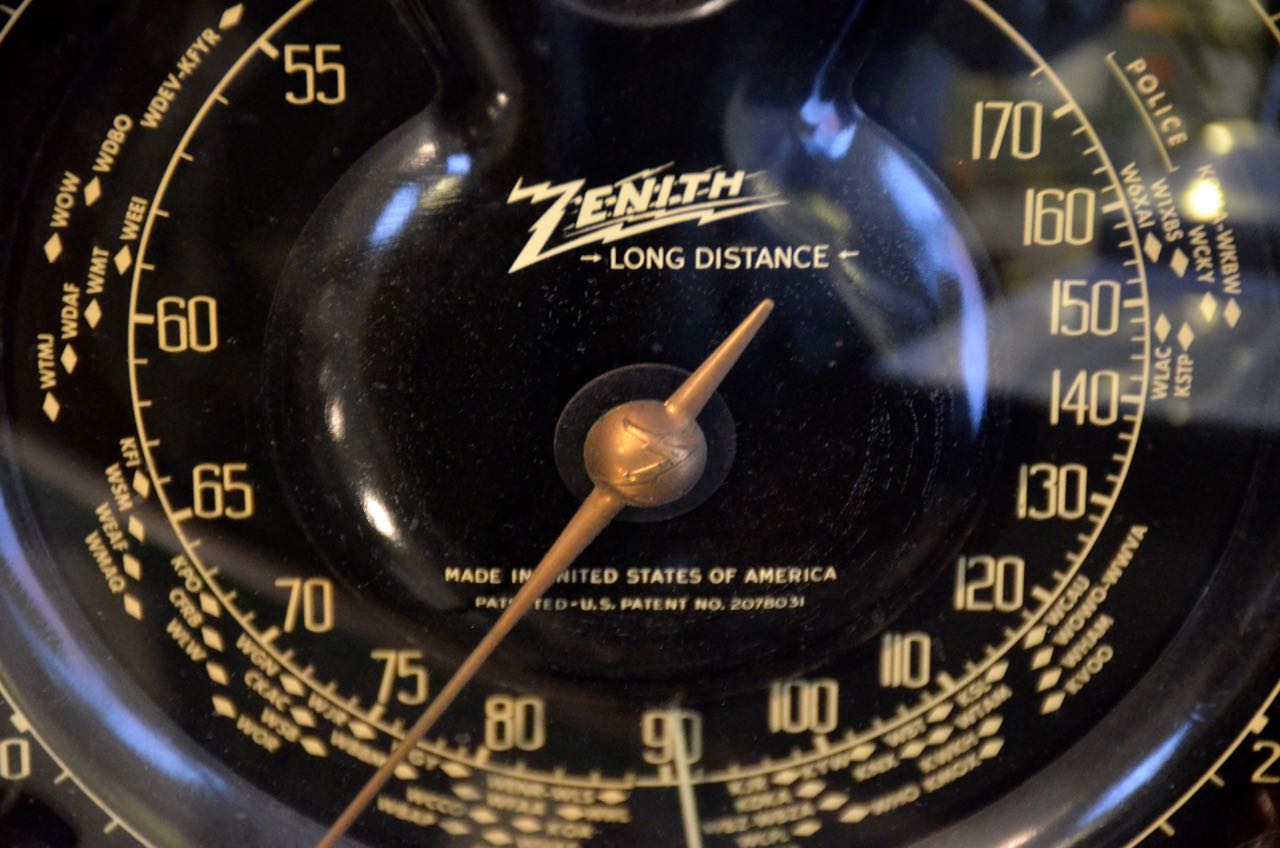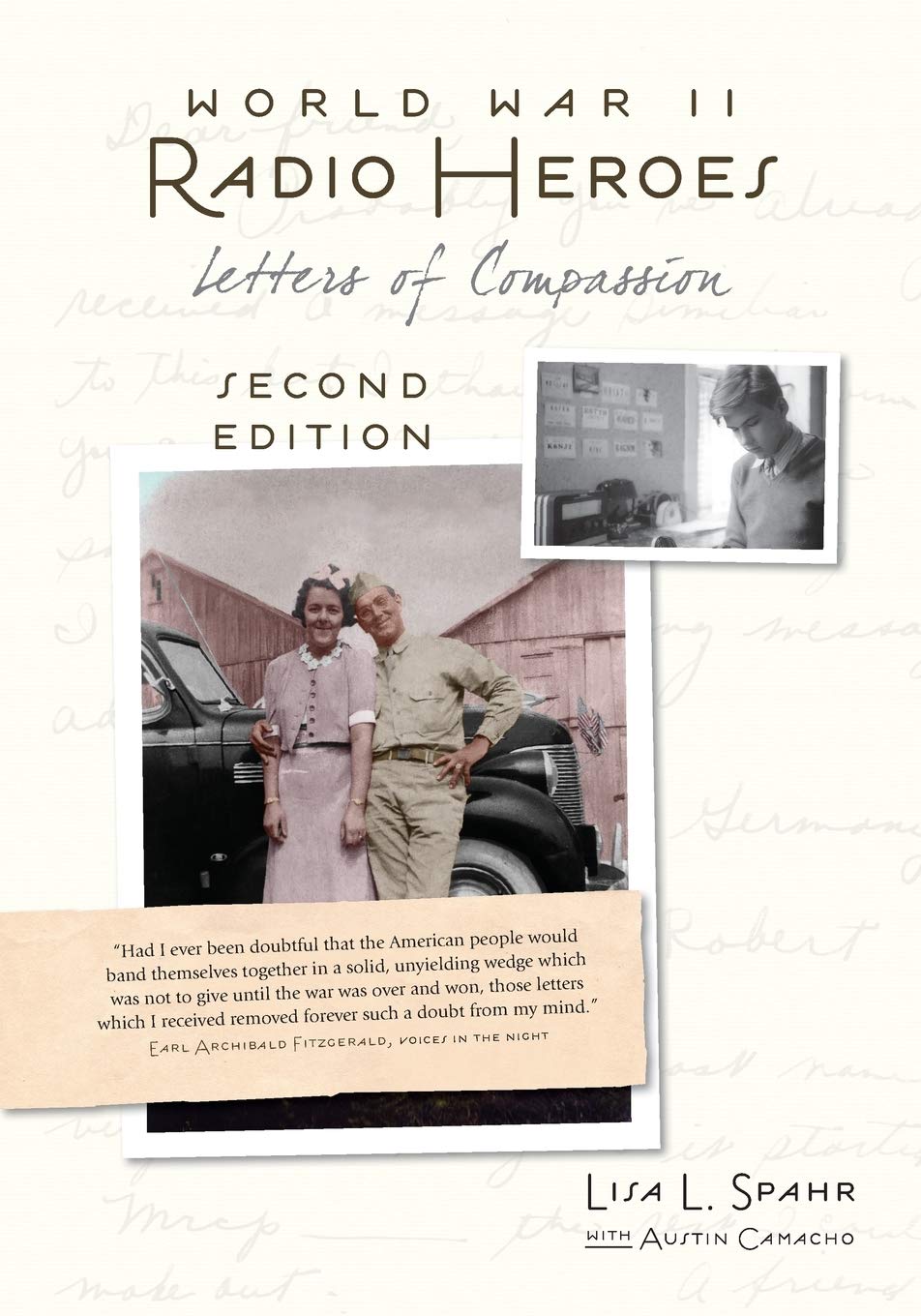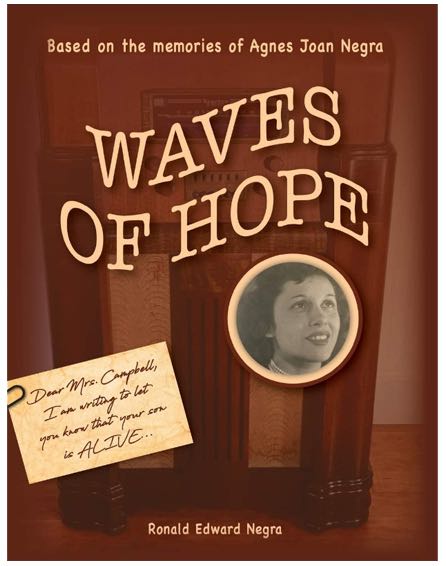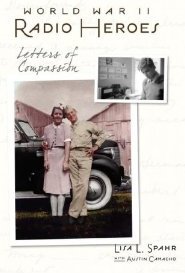 Many thanks to SWLing Post contributor, Jock Elliott, who shares the following guest post:
Many thanks to SWLing Post contributor, Jock Elliott, who shares the following guest post:
World War II Radio Letters: a real-life shortwave story – Part II
By Jock Elliott, KB2GOM
That so many people have been moved by Part I has been heartwarming. Since writing it, there have been further developments. Tecsun Radio Australia asked (and was granted) permission to reproduce the article for Anzac Day (April 25), when all fallen personnel in all wars are remembered in Australia.
In addition, I became aware of two books – World War II Radio Heroes Letters of Compassion and Waves of Hope (thanks, Bill Hemphill!) – that are all about World War II radio letters. We’ll get to those books in just a bit.
But first, I wanted to tell you something you might find surprising: I did not set out to write about how shortwave listeners had reassured my Mom that my Dad was alive during WWII. Not at all. In fact, in my 50 years as a writer, I found the process of how this came to be written, well, a little strange.
The night before, I had drifted off to sleep thinking about a radio and antenna comparison I had been fooling around with during the day (and which I plan to write up in the future). But in the morning – Holy Smokes! – completely out of the blue, my mind was seized by the following thought: Wasn’t it a shortwave listener in New Jersey that first informed my Mom that my Dad was a prisoner of War? (It turned out that wasn’t quite correct.) It’s in a scrapbook in the basement . . . go find it!
Now, I had not thought about those old scrapbooks in at least two decades, maybe more, but I could picture a particular scrapbook in my mind. Rooting around in the basement, I found it, but it didn’t contain anything about my Dad going missing in action or my Mom being informed he was still alive. Maybe I was wrong, I thought.
Back upstairs in my easy chair, the thought would not leave me alone, kept nudging me: Go find it. More digging in the basement produced the right scrapbook with the right information. Reading it, I found tears running down my face at the kindness of strangers.
As I completed writing World War II Radio Letters Part I and sent it off to Thomas, it struck me as curious that, in all my years writing about radio subjects, I had ever seen an article, or even a mention, of the shortwave monitors of WWII. I thought perhaps no one had ever written on the subject, but I was wrong.
I was poking around the internet and came across World War II Radio Heroes: Letters of Compassion Second Edition by Lisa Spahr. It is a 212-page 10-inch by 7-inch book that details her discovery of her grandfather’s WWII trunk, which contained dozens of letters and postcards from shortwave listeners who wrote to Spahr’s great-grandmother to let her know that her son had been captured and was a prisoner of war.
The book, which contains photos of the original correspondence from the SWLs, chronicles her attempt to contact those shortwave listeners or their families, her discovery of the Short Wave Amateur Monitors Club – which turned the monitoring for POWs names into an organized effort – and a lot else besides. If you enjoyed my first post on this subject, I am pretty sure you will enjoy this book.
The other book – Waves of Hope by Ronald Edward Negra – is about how his mother, Agnes Joan Negra, was a shortwave monitor during WWII who sent out more than 300 letters and postcards to families to inform them that their loved ones were captured and still alive. This is a larger format book (8.5 inches by 11 inches) running to 124 pages that reproduces the letters that Agnes received back from grateful families after receiving the news from Agnes. At the time of this writing, Agnes is still alive, about to celebrate her 102nd birthday!
I found Waves of Hope to be a moving and compassionate book, and I think any SWL will appreciate having it on his or her bookshelf.
Finally, you will find a great deal of additional information here: https://www.ontheshortwaves.com/history-III.html#POW
At the end of it all – the strange process of writing the story, the response of the readers, the books telling the story of WWII radio letters – I come back to the place I started as a grade school boy. It was then that I discovered monitoring the radio can be an almost magical activity . . . and you never know when something you heard may touch another’s life in a profound way.
So keep listening!



